Astrology, a longstanding practice that seeks to understand the correlation between celestial events and human affairs, has gained popularity and diverse interpretations around the world. One fascinating aspect of astrology is the concept of compatibility, which explores the dynamics between individuals based on their astrological signs. While there are various approaches to compatibility assessment, this article will delve into the differences and similarities between Western and Eastern astrology in terms of key concepts, compatibility assessment methods, philosophical perspectives, astrological systems, compatibility factors, and interpretation methods. Through exploring these aspects, we aim to shed light on the contrasting approaches to astrological compatibility and provide insight into the rich tapestry of beliefs and practices that have evolved over centuries.
Contents
- Western Astrology
- Eastern Astrology
- Comparing Western and Eastern Approaches
- Conclusion
-
Frequently Asked Questions
- What is the difference between Western and Eastern astrology?
- How do Western astrologers assess compatibility?
- What are the key concepts in Western astrology?
- How does Eastern astrology approach compatibility assessment?
- What are the key concepts in Eastern astrology?
- Do Western and Eastern astrology have the same interpretations of the zodiac signs?
- How does Western astrology incorporate other planetary placements?
- What are some differences in compatibility factors considered by Western and Eastern astrology?
- How do Western and Eastern astrology differ in their interpretation methods?
- Can Western and Eastern astrology be combined to gain a more comprehensive understanding of compatibility?
- References
-
Frequently Asked Questions
- 1. Why is astrology used to assess compatibility?
- 2. What are the differences between Western and Eastern astrology?
- 3. How does Western astrology assess compatibility?
- 4. How does Eastern astrology assess compatibility?
- 5. What are some key differences in philosophical approaches between Western and Eastern astrology?
- 6. Can Western and Eastern astrology be used together to assess compatibility?
- 7. What are some key compatibility factors in Western astrology?
- 8. How does Eastern astrology interpret compatibility factors?
- 9. Are there any limitations to astrological compatibility assessments?
- 10. Can astrological compatibility change over time?
- References
- Read More
Western Astrology
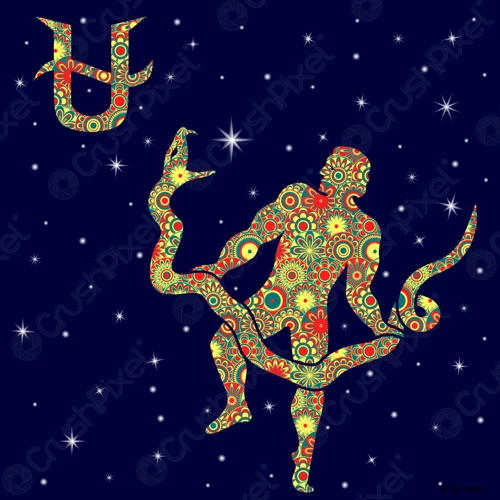
Western astrology, also known as traditional astrology, is a widely practiced and recognized astrological system that originated in ancient Greece and has been influenced by various cultures over time. Key concepts in Western astrology revolve around the zodiac, which is divided into twelve signs, each corresponding to a specific time period and associated with unique personality traits and characteristics. These signs are determined by the position of the sun at the time of a person’s birth. Western astrologers analyze compatibility by comparing the astrological signs of individuals to determine their compatibility based on shared elements, modalities, and complementary qualities. This approach considers the planets, houses, and aspects within a birth chart to gain insight into the dynamics of a relationship. While Western astrology relies heavily on the sun sign, incorporating other planetary placements and aspects provides a more nuanced understanding of compatibility factors.
1. Key Concepts
In Western astrology, the key concepts revolve around the zodiac signs and their associated qualities. The zodiac is divided into twelve signs, each representing a specific time period and associated with unique characteristics. These signs include Aries, Taurus, Gemini, Cancer, Leo, Virgo, Libra, Scorpio, Sagittarius, Capricorn, Aquarius, and Pisces. Each sign is associated with a ruling planet, which influences the energy and traits of that sign. For example, Aries is ruled by Mars, representing passion and assertiveness, while Venus rules Libra, symbolizing harmony and beauty. Additionally, the zodiac signs are further categorized into elements, including fire, earth, air, and water. These elements play a crucial role in determining compatibility, as signs within the same element tend to be compatible due to shared qualities and approaches to life. Western astrology emphasizes the importance of understanding one’s sun sign, as it represents their core identity and provides insight into their personality traits and potential compatibility with others. However, it is worth noting that other factors in a birth chart, such as the positions of other planets and the aspects between them, contribute to a more comprehensive understanding of an individual and their potential compatibility with others.
2. Compatibility Assessment
In Western astrology, compatibility assessment involves analyzing the astrological signs of individuals to determine their compatibility based on various factors. One key factor is the element that each sign belongs to: fire, earth, air, or water. Signs of the same element often exhibit a natural compatibility, as their energies harmonize and align. Another factor considered is the modality or quality associated with each sign: cardinal, fixed, or mutable. Cardinal signs are known for their leadership qualities, fixed signs for their stability and determination, and mutable signs for their adaptability. Compatibility between signs of different modalities can bring balance and complementarity to a relationship. Additionally, Western astrology considers the placement of Venus and Mars in the birth chart, as Venus represents love and harmony, while Mars represents passion and desire. The aspects between these planets and other key placements further influence compatibility assessment. Astrologers also analyze the houses and their rulerships to gain insights into specific areas of compatibility, such as communication (3rd house), romance (5th house), and partnership (7th house). By evaluating these compatibility factors, Western astrology seeks to provide a comprehensive understanding of the dynamics and potential challenges within a relationship.
Eastern Astrology
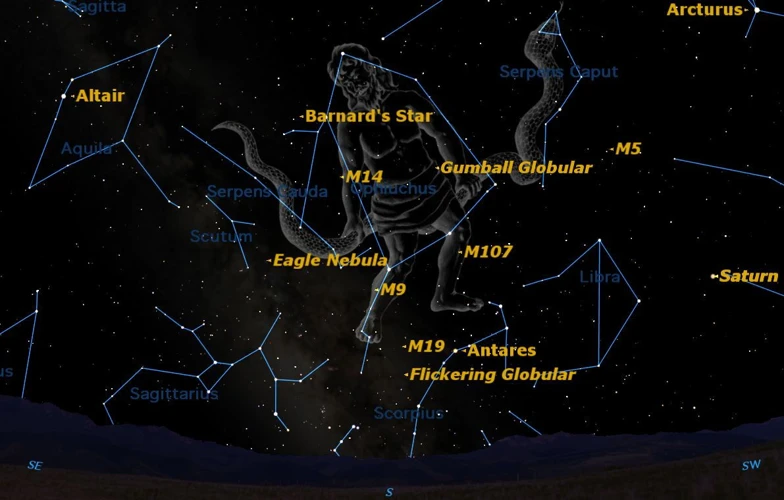
Eastern astrology, also known as Chinese astrology, is deeply rooted in ancient Chinese culture and is based on a lunar calendar. The key concepts of Eastern astrology revolve around the twelve animal zodiac signs, each representing a different year in a twelve-year cycle. These signs are based on the year of birth and are believed to influence a person’s personality traits and destiny. In addition to the zodiac signs, Eastern astrology takes into account the elements (wood, fire, earth, metal, water) and the yin and yang energies associated with each animal sign. Compatibility assessment in Eastern astrology involves analyzing the animal zodiac signs of individuals to determine their compatibility based on their compatibility or conflict with one another. This approach provides a comprehensive understanding of the dynamics between individuals by considering the interactions between the animal signs and their respective elements. Each animal sign also has a specific ruling planet, which further adds depth and insight into compatibility analysis.
1. Key Concepts
In Western astrology, key concepts revolve around the zodiac signs, planetary influences, and birth charts. The zodiac is divided into twelve signs, namely Aries, Taurus, Gemini, Cancer, Leo, Virgo, Libra, Scorpio, Sagittarius, Capricorn, Aquarius, and Pisces. Each sign is associated with distinct personality traits, characteristics, and elements. For example, Aries is a fire sign known for its enthusiasm and passion, while Taurus is an earth sign representing stability and practicality. The ruling planet of each sign plays a significant role in shaping their energy and qualities. For instance, Mars governs Aries, infusing them with assertiveness and courage. Understanding the qualities of each zodiac sign and their ruling planets can provide valuable insights into compatibility assessments. Additionally, birth charts, also known as natal charts, are crucial in Western astrology. These charts depict the exact positions of the planets at the time of an individual’s birth, providing a comprehensive snapshot of their characteristics, strengths, and potential challenges. Astrologers analyze the alignment of planets and their aspects to interpret an individual’s personality traits, emotions, and life events. By considering these key concepts, astrologers can assess compatibility between individuals based on the interplay of their zodiac signs and planetary placements.
2. Compatibility Assessment
In compatibility assessment within Western astrology, astrologers analyze various components of an individual’s birth chart to determine the compatibility with another person. These components include the sun sign, moon sign, rising sign, planetary placements, and aspects. The sun sign is often a starting point for compatibility analysis, as it represents the core essence and qualities of an individual. However, it is important to consider other factors like the moon sign, which represents emotions and inner needs, and the rising sign, which influences the outward presentation and initial impressions.
To assess compatibility, astrologers compare the elemental compatibility between two individuals. The elements – fire, earth, air, and water – represent different energies and qualities. Fire signs (Aries, Leo, Sagittarius) are passionate and enthusiastic, earth signs (Taurus, Virgo, Capricorn) are grounded and practical, air signs (Gemini, Libra, Aquarius) are intellectual and communicative, and water signs (Cancer, Scorpio, Pisces) are emotional and intuitive. Compatible signs often share elements, as they understand and complement each other’s energy.
Additionally, astrologers examine the modality of signs, which reflects their approach to life. The three modalities are cardinal, fixed, and mutable. Cardinal signs (Aries, Cancer, Libra, Capricorn) are initiators and leaders, fixed signs (Taurus, Leo, Scorpio, Aquarius) are stable and persistent, and mutable signs (Gemini, Virgo, Sagittarius, Pisces) are adaptable and flexible. Compatibility between signs of the same modality can indicate harmony, while mixing different modalities can create balance in a relationship.
Compatibility assessment in Western astrology considers the aspects between planets in the birth chart of two individuals. These aspects indicate the angles and relationships between planets and can reveal the dynamics and potential challenges within a relationship. For example, a harmonious aspect like a trine or a conjunction can indicate compatibility and ease in communication, while a challenging aspect like a square or an opposition may signify friction and conflicts.
It is important to note that compatibility assessment within Western astrology is complex and multifaceted, with multiple factors influencing the dynamics between individuals. While the sun sign is often emphasized in popular culture, a thorough analysis of the birth chart provides a more comprehensive understanding of compatibility. Consulting with an experienced astrologer who takes these various components into account can offer valuable insights into the compatibility between individuals. (source: astrology.com)
Comparing Western and Eastern Approaches
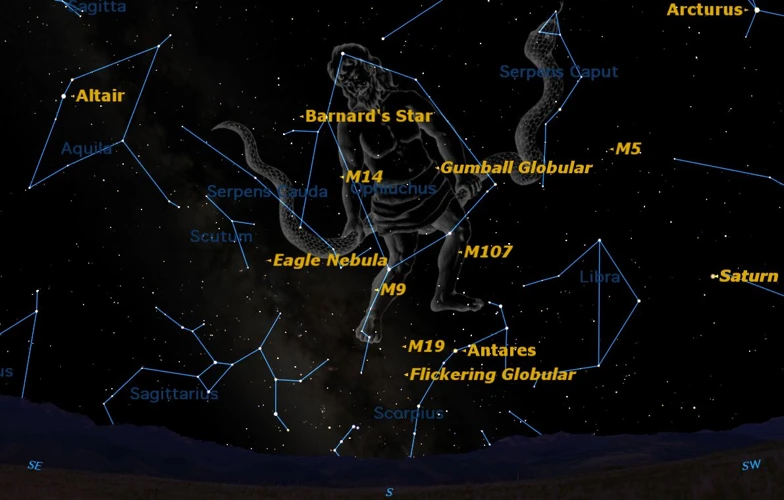
Comparing Western and Eastern approaches to astrological compatibility reveals distinct philosophical differences, astrological systems, compatibility factors, and interpretation methods. In terms of philosophy, Western astrology tends to focus on individualism, placing significance on personal traits and characteristics as determined by the zodiac signs and planetary placements. Eastern astrology, on the other hand, embodies a more collective and holistic perspective, considering not only the individual’s birth chart but also the interconnectedness with the surrounding world and the cycles of nature. The astrological systems used in Western and Eastern astrology also differ. Western astrology primarily utilizes the tropical zodiac, which is based on the position of the sun, whereas Eastern astrology relies on the sidereal zodiac, taking into account the position of fixed stars. Compatibility factors vary as well. Western astrology emphasizes the element, modality, and planetary aspects present in an individual’s birth chart, whereas Eastern astrology considers the animal signs and the five elements, along with other factors such as yin and yang energies. Lastly, Western astrology often employs more subjective interpretation methods, allowing for personal intuition and psychological analysis, while Eastern astrology often relies on predetermined meanings and traditional interpretations. By exploring these differences, we can appreciate the unique perspectives and insights offered by Western and Eastern approaches to astrological compatibility.
1. Philosophical Differences
In examining the philosophical differences between Western and Eastern astrology, we find contrasting perspectives on the role of astrology in understanding human life. Western astrology tends to adopt a more individualistic approach, placing emphasis on personal identity and self-expression. It views the birth chart as a reflection of an individual’s unique characteristics and potential, suggesting that individuals have the power to shape their own destiny. The focus is on personal growth and self-discovery, with astrology seen as a tool for self-awareness and understanding. Eastern astrology, on the other hand, tends to take a more collective and fate-oriented approach. It considers the interconnectedness of all living beings and views astrology as a means to comprehend one’s place within the larger cosmic order. Eastern astrology places importance on destiny and predetermined connections between individuals, suggesting that there is a larger plan at work. This perspective emphasizes harmony and balance in relationships and places less emphasis on individuality. While both Western and Eastern astrology seek to provide insights into human affairs, they differ in their philosophical underpinnings and the extent to which they attribute agency and control over one’s life.
2. Astrological System
In Western astrology, the astrological system is based on the zodiac, which consists of twelve signs that are associated with specific dates and personality traits. These signs are Aries, Taurus, Gemini, Cancer, Leo, Virgo, Libra, Scorpio, Sagittarius, Capricorn, Aquarius, and Pisces. Each sign is ruled by a particular planet, which influences its energy and characteristics. For example, Aries is ruled by Mars, representing assertiveness and action, while Taurus is ruled by Venus, symbolizing sensuality and stability. The astrological system also includes the concept of elements and modalities, which further shape the overall personality of an individual. The four elements are fire, earth, air, and water, representing passion, practicality, intellect, and emotion, respectively. The three modalities are cardinal, fixed, and mutable, indicating the different ways in which each sign expresses itself. This astrological system forms the foundation for understanding personality traits and compatibility in Western astrology. For more information on specific qualities of each sign, you can refer to the article on Ophiuchus qualities.
3. Compatibility Factors
When it comes to compatibility factors in astrology, both Western and Eastern approaches consider various elements to determine the dynamics between individuals. In Western astrology, compatibility is assessed by examining the zodiac signs of individuals and analyzing their interactions based on shared elements, modalities, and complementary qualities. For example, individuals with compatible elements like fire and air often have an electric and dynamic connection, while those with opposing elements like fire and water can experience intense but potentially challenging interactions. Modality, which refers to the mode of operation of a sign (cardinal, fixed, or mutable), also plays a role in compatibility assessment. Cardinal signs are known for their initiative and leadership, fixed signs for their stability and determination, and mutable signs for their adaptability and flexibility.
In Eastern astrology, compatibility factors are assessed mainly through the Chinese zodiac, which is based on a twelve-year cycle represented by different animal signs. Each animal sign is believed to have certain personality traits and characteristics. Compatibility in Eastern astrology is determined by examining the animal signs of individuals and their compatibility based on the Chinese zodiac chart. For example, individuals born in the Year of the Rat are said to be compatible with those born in the Year of the Ox or the Year of the Dragon, while they may experience challenges with those born in the Year of the Horse.
Although the approaches to compatibility factors differ, both Western and Eastern astrology provide insights into the potential dynamics between individuals based on the alignment of their astrological signs. It should be noted that these compatibility factors are not definitive or absolute, but rather serve as a guide to understanding potential strengths, challenges, and dynamics in relationships. Understanding and embracing these factors can help individuals navigate their relationships with awareness and compassion.
To learn more about the ruling planet and its influence on compatibility, check out our informative guide on ruling planet energies. Additionally, if you’re curious about the compatibility between the newly discovered Ophiuchus zodiac sign and other signs, we have a comprehensive Ophiuchus zodiac match compatibility analysis for you to explore.
4. Interpretation Methods
Interpretation methods in Western astrology involve the analysis of birth charts to gain insight into an individual’s personality traits, strengths, weaknesses, and compatibility with others. One common method is the use of aspects, which are the angular relationships between planets within a birth chart. These aspects, such as the conjunction, square, trine, and opposition, provide information about the dynamics and potential challenges in a relationship. Astrologers also consider the houses, which represent different areas of life, to further understand how individuals interact and align in specific areas, such as romance, career, or family. Additionally, Western astrology employs the concept of planetary rulership, where each sign is ruled by a specific planet, influencing the traits and qualities associated with that sign. This approach facilitates a deeper understanding of a person’s personality and compatibility with others based on the interplay of ruling planets. Western astrology incorporates transits, which are the current positions of the planets in relation to an individual’s birth chart. By analyzing transits, astrologers can provide insights into upcoming events or shifts in energy that may impact a relationship. Western astrology interpretation methods offer a comprehensive and multifaceted approach to understanding compatibility and relationship dynamics.
Conclusion
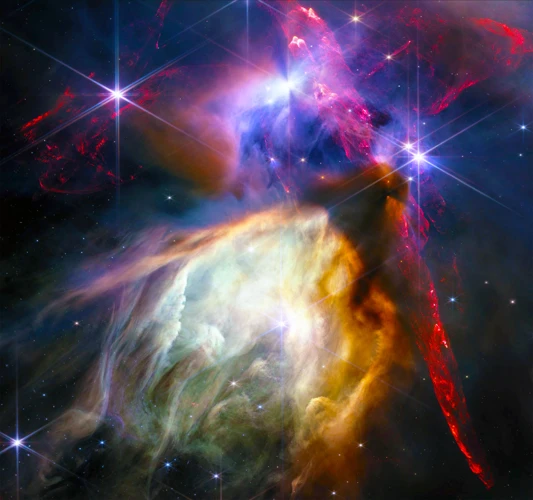
In conclusion, the approaches to astrological compatibility in Western and Eastern astrology offer distinct perspectives and methods for understanding the dynamics between individuals. Western astrology places a strong emphasis on the zodiac signs and uses a combination of planetary placements, houses, and aspects to assess compatibility. Eastern astrology, on the other hand, focuses on the Chinese zodiac and utilizes the concept of animal signs and elemental influences. While Western astrology tends to be more individual-centered and focused on personal traits, Eastern astrology takes a broader view, considering societal and cultural influences as well. Both systems provide valuable insights into compatibility, but their methodologies and philosophies differ significantly. It’s important to remember that astrology, in all its forms, offers a unique lens through which to explore relationships, but it should not be the sole determinant of compatibility. Ultimately, the decision to cultivate a harmonious partnership lies in the hands of the individuals involved, as astrology simply provides guidance and a framework for understanding potential dynamics.
Frequently Asked Questions
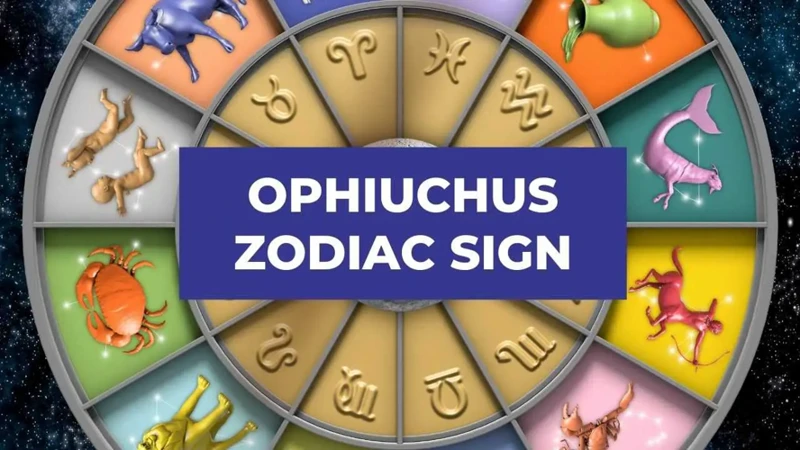
What is the difference between Western and Eastern astrology?
The main difference lies in their historical origins and the systems they follow. Western astrology originated in ancient Greece and is based on the concept of zodiac signs. Eastern astrology, on the other hand, has its roots in ancient China and follows a lunar calendar system.
How do Western astrologers assess compatibility?
Western astrologers assess compatibility by comparing the astrological signs of individuals based on shared elements, modalities, and complementary qualities. They also consider the planets, houses, and aspects within a birth chart to gain deeper insight into the dynamics of a relationship.
What are the key concepts in Western astrology?
The key concepts in Western astrology include the zodiac signs, planetary positions, aspects, houses, and the interpretation of birth charts. Each zodiac sign has unique personality traits and characteristics, while the placement of planets in different houses and their aspects with each other provide additional information.
How does Eastern astrology approach compatibility assessment?
Eastern astrology approaches compatibility assessment by analyzing the birth year, month, day, and time of individuals to determine their animal signs and elements. Compatibility is then assessed based on the compatibility of these animal signs and elements.
What are the key concepts in Eastern astrology?
The key concepts in Eastern astrology include the animal signs of the Chinese zodiac, the five elements (wood, fire, earth, metal, and water), and the lunar calendar. Each animal sign is associated with specific personality traits and characteristics, while the elements further influence compatibility.
Do Western and Eastern astrology have the same interpretations of the zodiac signs?
No, Western and Eastern astrology have different interpretations of the zodiac signs. While Western astrology focuses on the sun sign, Eastern astrology takes into account the animal sign of the Chinese zodiac, which is based on the lunar calendar.
How does Western astrology incorporate other planetary placements?
Western astrology incorporates other planetary placements by considering the position of planets in different signs and houses within a birth chart. These additional placements provide a more detailed understanding of an individual’s personality and can offer insights into compatibility factors.
What are some differences in compatibility factors considered by Western and Eastern astrology?
Western astrology considers factors like the shared elements, modalities, and complementary qualities between individuals. Eastern astrology, on the other hand, focuses on the compatibility of animal signs and elements, which are influenced by birth year, month, day, and time.
How do Western and Eastern astrology differ in their interpretation methods?
Western astrology interprets compatibility by analyzing the aspects and placements of planets within a birth chart to understand the dynamics between individuals. Eastern astrology relies on the animal signs, elements, and compatibility charts to assess the harmonious or challenging aspects of a relationship.
Can Western and Eastern astrology be combined to gain a more comprehensive understanding of compatibility?
Yes, integrating both Western and Eastern astrology can provide a more comprehensive understanding of compatibility. By considering astrological factors from both systems, individuals can gain additional insight into their relationships and explore different perspectives in astrological compatibility.
References
- Do you believe Western and/or Eastern astrology zodiac …
- Are the Stars Aligned? Matchmaking and Astrology in Early …
Frequently Asked Questions

1. Why is astrology used to assess compatibility?
Astrology is used to assess compatibility because it provides insights into individuals’ personality traits, strengths, and weaknesses. By comparing astrological charts, it helps identify potential conflicts or harmonies between two individuals.
2. What are the differences between Western and Eastern astrology?
Western astrology focuses on the position of the planets and their influence on individuals’ lives, while Eastern astrology places more emphasis on the lunar cycles and the Chinese zodiac signs. They also have different astrological systems and interpretative methods.
3. How does Western astrology assess compatibility?
Western astrology assesses compatibility by comparing the zodiac signs of individuals. It looks at the elements (fire, earth, air, and water) and the qualities (cardinal, fixed, and mutable) to determine the compatibility potential between two individuals.
4. How does Eastern astrology assess compatibility?
Eastern astrology assesses compatibility by comparing the Chinese zodiac signs of individuals. It looks at the animal signs and the five elements (wood, fire, earth, metal, and water) to determine the compatibility potential between two individuals.
5. What are some key differences in philosophical approaches between Western and Eastern astrology?
Western astrology is more individual-focused and emphasizes self-discovery and personal growth. Eastern astrology, on the other hand, places stronger emphasis on the collective and views individuals as interconnected with their environment and social dynamics.
6. Can Western and Eastern astrology be used together to assess compatibility?
Yes, Western and Eastern astrology can be used together to assess compatibility. By considering both astrological systems, individuals can gain a more comprehensive understanding of their compatibility potential and explore different dimensions of their relationship.
7. What are some key compatibility factors in Western astrology?
Some key compatibility factors in Western astrology include the compatibility of the zodiac signs, the elements, and the qualities. Other factors such as the positions of the planets, aspects, and the individual’s birth chart can also influence compatibility.
8. How does Eastern astrology interpret compatibility factors?
Eastern astrology interprets compatibility factors by analyzing the animal signs and their compatibility as well as the influence of the five elements. It also considers other factors such as the lunar calendar and the individual’s birth year in determining compatibility.
9. Are there any limitations to astrological compatibility assessments?
Astrological compatibility assessments should be taken as a guide rather than an absolute determinant of relationship success. While astrology provides insights, individual free will, personal growth, and other non-astrological factors also play significant roles in relationship dynamics.
10. Can astrological compatibility change over time?
Astrological compatibility can change over time as individuals grow, evolve, and experience different life circumstances. It’s important to revisit and reassess compatibility periodically to adapt to changing dynamics and optimize relationship dynamics.
References
- Is your Zodiac sign a lie?: Vedic vs. Western astrology
- The Trick to Understanding Astrological Compatibility






